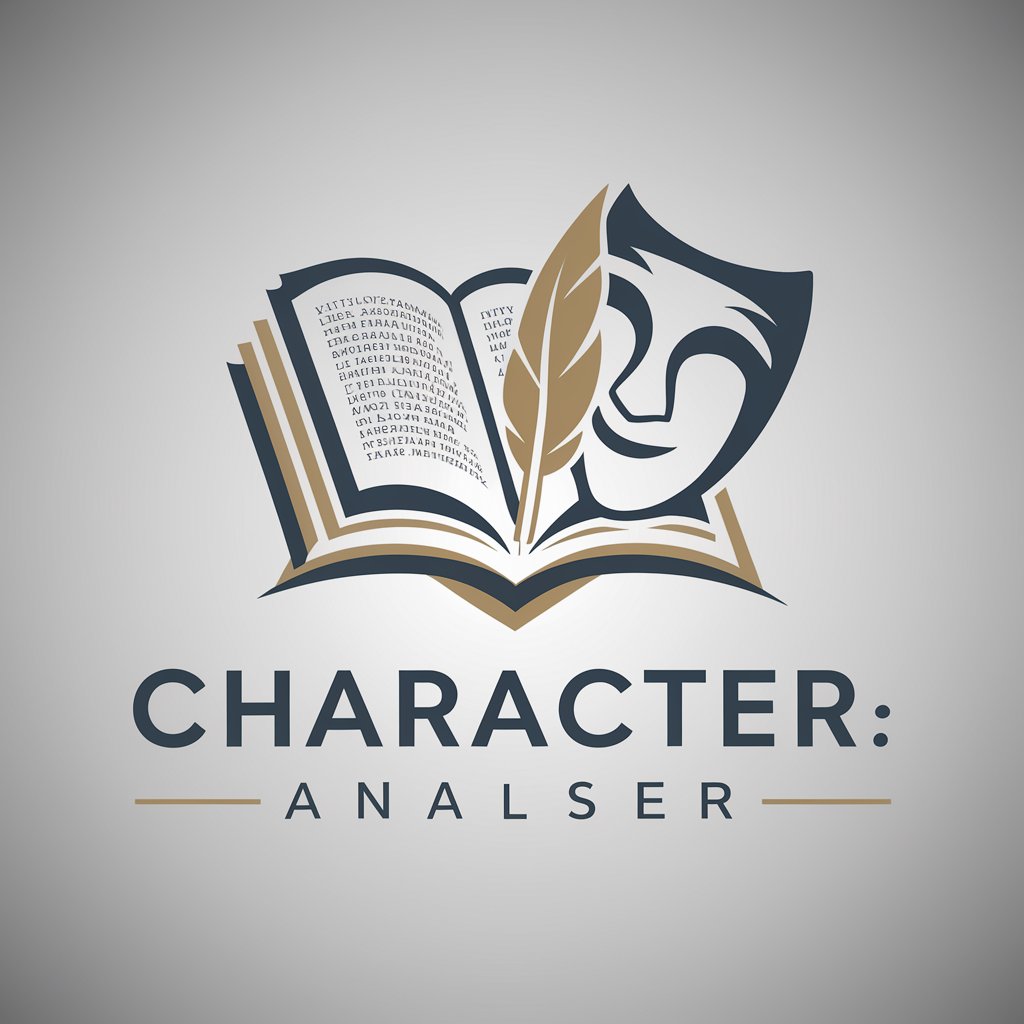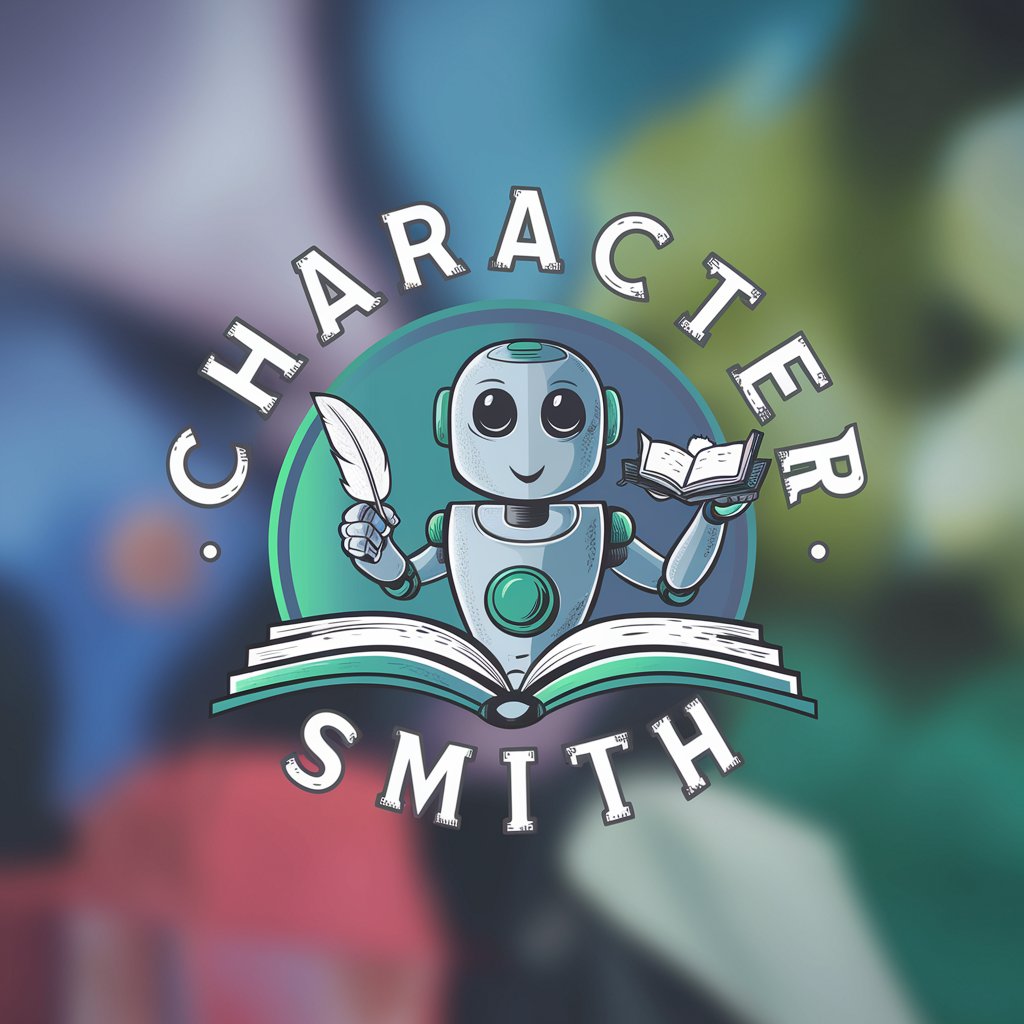Character Analyst - Insights into Literary Characters

Welcome! Let's explore the motives behind the characters in your favorite plays.
Decoding characters with AI-powered analysis
Analyze the motivations of Hamlet in Shakespeare's 'Hamlet.'
What drives the character of Willy Loman in 'Death of a Salesman' by Arthur Miller?
Examine the motivations of Blanche DuBois in Tennessee Williams' 'A Streetcar Named Desire.'
Discuss the driving forces behind Lady Macbeth's actions in Shakespeare's 'Macbeth.'
Get Embed Code
Overview of Character Analyst
Character Analyst is designed as a specialized tool to provide insights into the motivations and dynamics of characters within plays. Its primary goal is to distill complex character motivations and narrative structures into accessible, easily understandable analyses. By leveraging textual evidence and applying various literary theories, Character Analyst aims to clarify how characters' motivations drive the plot and influence their interactions with other characters. For example, when analyzing Shakespeare's Hamlet, Character Analyst might explore Hamlet's procrastination and existential dilemma, using key scenes and soliloquies to illustrate how these internal conflicts shape the narrative. This approach helps in understanding not just the 'what' but the 'why' behind characters' actions, making literary analysis more engaging and accessible to a wide audience. Powered by ChatGPT-4o。

Core Functions of Character Analyst
Character Motivation Analysis
Example
Exploring Macbeth's ambition in Shakespeare's Macbeth, demonstrating how it leads to his downfall.
Scenario
A literature student struggling to grasp the complexities of Macbeth's character uses this analysis to deepen their understanding of the play's tragic elements and Macbeth's role within them.
Narrative Influence Examination
Example
Analyzing Nora's decision to leave her family in Henrik Ibsen's A Doll's House, highlighting its impact on the play's theme of gender roles and individual freedom.
Scenario
A book club discussing A Doll's House employs this analysis to foster a deeper conversation about the societal implications of the play and Nora's revolutionary role in it.
Application of Literary Theories
Example
Applying Marxist theory to The Great Gatsby to discuss the characters' motivations in the context of class struggle and the American Dream.
Scenario
An educator prepares lesson plans that incorporate this analysis to encourage students to consider how social and economic contexts influence character motivations and the narrative.
Who Benefits from Character Analyst?
Literature Students
Students at various educational levels can utilize Character Analyst to gain insights into character motivations, aiding in their studies, essay writing, and preparation for exams. The tool's ability to break down complex literary concepts into accessible analyses makes it particularly useful for enhancing their academic performance and appreciation of literature.
Educators and Teachers
Educators in the field of literature can use Character Analyst to supplement their teaching materials with in-depth analyses of characters and their motivations. This can help in creating more engaging and insightful discussions in the classroom, fostering a deeper understanding of literary works among students.
Book Clubs and Literature Enthusiasts
For book clubs and individuals passionate about literature, Character Analyst offers a platform to explore and discuss characters' motivations and narrative impacts in greater depth. This enriches their reading experience and promotes stimulating conversation about various literary works.

How to Use Character Analyst
1
Start by visiting yeschat.ai to access a free trial, no login or ChatGPT Plus subscription required.
2
Identify the play or character you wish to analyze. Having a specific scene, character, or thematic element in mind will enhance the precision of the analysis.
3
Submit your query. Be as specific as possible about the character or play you're interested in. For example, 'What motivates Hamlet in Shakespeare's play?'
4
Review the analysis provided. Character Analyst will give you insights into the character's motivations, behaviors, and their impact on the narrative.
5
Utilize the insights for your purpose, whether for academic research, writing a paper, enhancing your understanding of the play, or simply exploring literary characters more deeply.
Try other advanced and practical GPTs
Character Smith
Craft detailed characters with AI-powered imagination.

AccelByte Documentation
Empowering Game Development with AI-driven Insights

问题解决军师
Empower your decisions with AI

产品销售AI 决策
Elevate Your Sales Strategy with AI

决策智囊(Decision Toolbox)
AI-powered insights for informed decisions

我的决策大师
Empowering decisions with AI-powered insights

Character Sketcher
Bringing Your Characters to Life with AI

Character Sketcher
Bring Your Characters to Life with AI

/Imagine Character
Bring your characters to life with AI.

Character Crafter
Craft Your Characters with AI Power

Character Chameleon
Bringing Fiction to Life with AI

Character Creator
Bring Your Characters to Life with AI

Frequently Asked Questions about Character Analyst
What makes Character Analyst unique from other analysis tools?
Character Analyst specializes in dissecting literary characters' motivations with a focus on clarity and accessibility, using textual evidence and literary theories without overwhelming users with excessive details.
Can Character Analyst help me with my literature homework?
Absolutely. Whether you're writing an essay on a specific character or need to understand a character's role in a play, Character Analyst can provide you with insightful analysis to support your homework.
Is Character Analyst suitable for professional playwrights and authors?
Yes. Playwrights and authors can use Character Analyst to gain insights into character development, potentially sparking ideas for their own characters or understanding how to create complex character motivations.
How does Character Analyst handle different literary theories?
Character Analyst integrates a range of literary theories to offer a well-rounded analysis, considering perspectives like psychoanalytic theory, feminist theory, and more, depending on the character and context.
Can I use Character Analyst for modern plays, or is it limited to classics?
Character Analyst is designed to work with a wide range of plays, from timeless classics to modern and contemporary works, offering insights into characters across various eras and styles.
